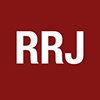This year’s Ryerson Review of Journalism reflects the interests and backgrounds of the small group of students who created it. After two intense years of reading every magazine and newspaper that came our way, painfully learning reporting and interviewing skills, struggling over leads, transitions and the sheer hard work of writing, we embarked on the production of our own magazine-the Review. Many of us brought to the task a healthy skepticism of mainstream media, fostered in part by our own experiences and in part by our reading of other journalism reviews and media criticism. Some of us were concerned about the integrity and ethics of large media and those who work for them; others were suspicious of the power of the media and the biases contained in the news they present.
As we worked on our stories our suspicions were often borne out. Calgarian Leah Bradish, in a painstaking investigation of The Globe and Mail’s national edition, examined its claim to be Canada’s national newspaper. The Globe’s top management assert their paper is national in attitude and content. But the deeper Leah dug the more convinced she became that the paper is dominated by a central Canadian focus and voice. The Globe, for the most part, does not respond well to the interests of populations west of Ontario and east of Quebec.
Anna Kohn has new reasons to worry about the accuracy and thoroughness of the media. Researching a story about funding cutbacks at the National Film Board’s women’s studio-Studio D-Anna found a complicated mess of figures, theories, assertions and denials. She also found that no one in the media, whether or not they were sympathetic to Studio D, had done enough homework. Journalists had accepted many of the answers before they even started asking questions. The result was a misrepresentation of Studio D’s financial problems and the way they have developed.
Mark Bastien, in his examination of the use and misuse of quotes, introduced another area of concern. He discovered that too few publications have rules or policies to help writers and editors decide what is acceptable practice. As a result, reporters are sometimes guilty of gross inaccuracies.
Many of the Review staff looked to alternative media for another side of a story or for news and opinions unavailable elsewhere. Thus Michael Totzke’s story of The Body Politic, Canada’s first and only national gay magazine. The growth of TBP in the 1970s and ’80s marked the coming of age of the fight for homosexual rights in Canada; the magazine’s death this winter signalled the end of a chapter in that struggle. Doug Bennet found another member of the progressive press in much better shape. In its 20th year, This Magazine, a gutsy little left -wing publication, is in the midst of a new beginning. Mathew Ingram wanted to know why a group of Indian-owned radio and TV stations and newspapers merged last year to form the National Aboriginal Communications Society. Its goal, he reports, is to produce and distribute news, entertainment and cultural programming by and for Indians.
We were encouraged by the ability and determination of alternative media, but we were also impressed by the talent and integrity of some members of the mainstream. Documentary maker Christa Singer, for example. As Marie Caloz’s profile shows, Singer has been producing sensitive films about some of Canada’s least fortunate people for the last 30 years. Singer’s work has won wide acclaim internationally but few Canadians have ever heard of her. Guest columnists Oakland Ross and Terence Dickinson describe some of the pitfalls inherent in journalism; both writers are anxious to make improvements. And many of us spoke to media critics and academics who also offer solutions to problems with contemporary journalism. Putting out the Review has deepened our understanding of the way journalism works, and although this knowledge is at times disheartening, we are convinced it is possible to do a thoughtful and accurate job of telling stories that will inform, amuse and touch our readers.
About the author
Lisa McCaskell was the Editor for the Spring 1987 issue of
the Ryerson Review of Journalism.
